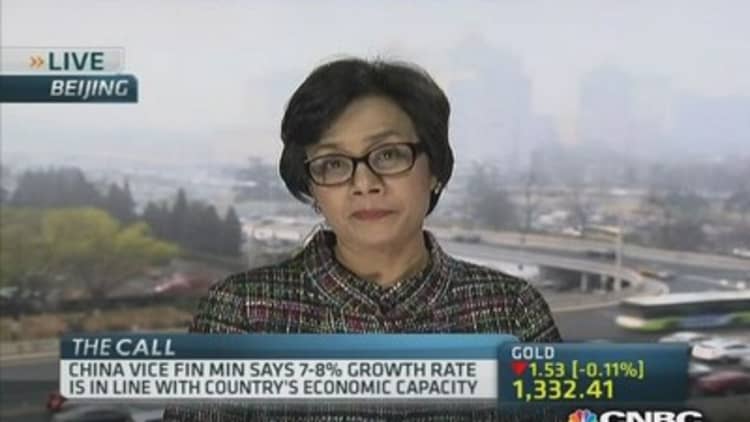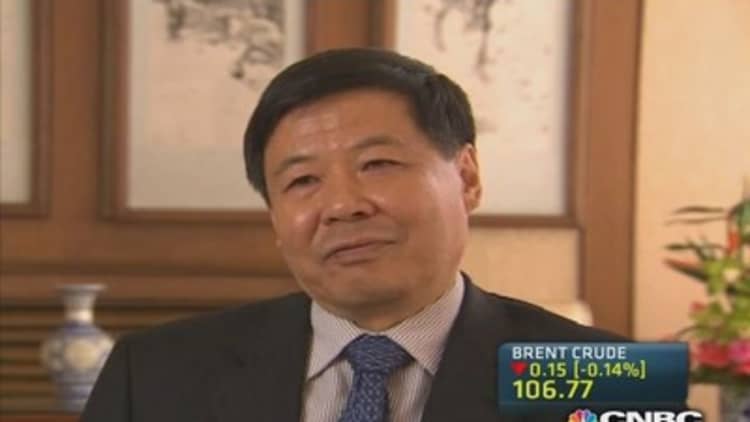
Urbanization of China's population has become one of the most important elements in the mainland's shift toward domestic consumption and away from investment-led growth, said Sri Mulyani Indrawati, chief operating officer at the World Bank.
"Chinese leaders recognize the inefficiency and (are aiming for) less reliance on investment," she told CNBC from Beijing at the launch of a World Bank report on urbanization. "Urbanization has become one of the most important parts of shifting the growth model," she said.
(Read more: China will avoid past mistakes on stimulus: Vice Fin Min)
She expects the shift will require a lot of policy adjustment, with reforms needed on land policy, including imposing a property tax to substitute revenue for local governments to provide services for their cities' populations. Local governments have been relying on revenue from selling land to convert it into urban space, she noted.
"To maintain [economic] growth at 7.5 percent, [with] better quality and more inclusive, the change is really needed," she said. "They have to change the ecosystem. That is not only going to require the fiscal space, or the ability to finance it, but also the ability to provide those services to many of the migrants moving from the rural to the city area."

(Read more: What I worry about the most in China: Caterpillar CEO)
Authorities last week unveiled the National New-type Urbanisation Plan, which detailed Beijing's strategy to increase the amount of Chinese people living in cities to 60 percent from 54 percent by the end of 2020, through huge investment in transport networks, urban infrastructure and residential real estate, together with reforms to the country's registration system.
Urbanization has been core in Chinese policymakers' decisions over the past decade, and the latest announcement was part of the continued drive to help more rural dwellers migrate to cities, improving their standard of living and helping boost the overall economy.
(Read more: Why China needs a national property tax)
As part of the plan, Chinese authorities have scheduled the cancelling of the hukou registration system – which makes it difficult for a Chinese citizen to leave the place in which they were born – and eased restrictions in some mid-sized cities. However, strict policies will be maintained in cities with a population of over five million.
Indrawati isn't the only one watching how this urbanization shift will be implemented.
"The goal is quite ambitious. 60 percent urbanization by 2020 is quite a laudable goal," said Alaistair Chan, an economist at Moody's Analytics.
"Whether that happens or not will depend on how the central government works with the local governments," he told CNBC. "A lot of the local governments might be resisting (reforms) just for their own revenue purposes," he said.
(Read more: Urbanization plan could further cool China property)
Others have also noted concerns over how local governments will finance the population shift toward the cities.
"Given the fiscal implications of new urban residents' social security, the plan states that government, enterprises and individuals will all shoulder the cost of urbanization, implying that new enterprise and individual taxes or fees may be utilized," Brian Jackson, a China economist at IHS Global Insight said in a note last week.
(Read more: Can China contain high local government debt?)
"Besides social security, the central and local government will fully bear the cost of new urban residents' compulsory education and low-income housing," he noted.
With the cost of the initiative likely "considerable," he expects new funding sources will need to be opened for local governments, including issuing municipal bonds.
—By CNBC.Com's Leslie Shaffer; Follow her on Twitter @LeslieShaffer1

